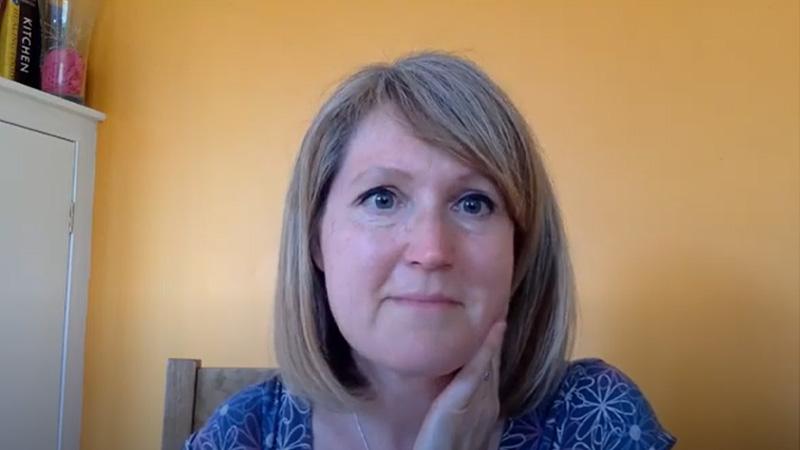Professor Catherine Loveday, Professor on the Cognitive and Clinical Neuroscience BSc Honours course, has created an advice video for Age UK Barnet about supporting people with dementia during the COVID-19 pandemic.

Professor Loveday’s first point in the video was about routine. People with dementia tend to lose control of the rhythms of routine so they rely on external signals to tell them the time of day, such as light, dark and mealtimes. During the pandemic, there is less variation in the day and so fewer reference points. She says that having fixed ‘anchor points’ in the day can help with this, such as listening to the radio or watching TV at the same time each day or week, using calendars and diaries or easy-to-read clocks, as well as marking the week with distinctive activities such as replacing church with an online service or prayer time.
Social connection is also important, where regular phone calls and experimentation with technology such as Zoom can be helpful. Professor Loveday also advises not to correct people on their memory unless it really matters and to let those with dementia lead the conversation.
She also gave advice on how to speak about COVID-19 to someone with dementia or memory problems, including not bringing it up unless an important message has to be conveyed, sticking to the facts, looking for and focusing on the positives, and repeating important messages such as hand-washing and social distancing.
Professor Loveday also pointed to practical and psychological support, with physical wellbeing having a big impact on the brain and memory functioning. She says to eat regular healthy meals, have regular sleep and engage in activities to reduce stress and confusion caused by memories that may be confusing or not make sense. These activities can include painting, knitting, jigsaws, simple card games and colouring.
Her final point in the video is to reminisce and find ways to connect with the ‘safe’ parts of people’s past by going through music, photos, objects and even clothing, as well as watching old familiar films and encouraging writing for those who feel comfortable with it.
Professor Loveday then conducted a separate online Q&A in aid of Mental Health Awareness Week, where the designated theme was kindness. In the video she answered questions about the impact of sleep, possible home activities for people with dementia and addressed fears around going out again and what the world is going to look like due to the pandemic.
Professor Loveday said about the videos: “I’m a trustee for Age UK Barnet and over the last year I have given a series of free public talks about the brain for their clients and others who are interested. They’ve been really well attended so we have been trying to think about how or whether we could replace these during lockdown. The Chief Executive asked me if I could provide some advice to their clients who are supporting people with dementia during lockdown. We decided that as well as putting some information on their website, it would be nice to make a video and would be a nice way to continue the series of talks. My 13-year-old is quite tech-savvy, so he helped me put it all together, adding in some subtitles and stock footage. We’ve had some really nice feedback from people who have been really struggling and were grateful for the simple tips.”


